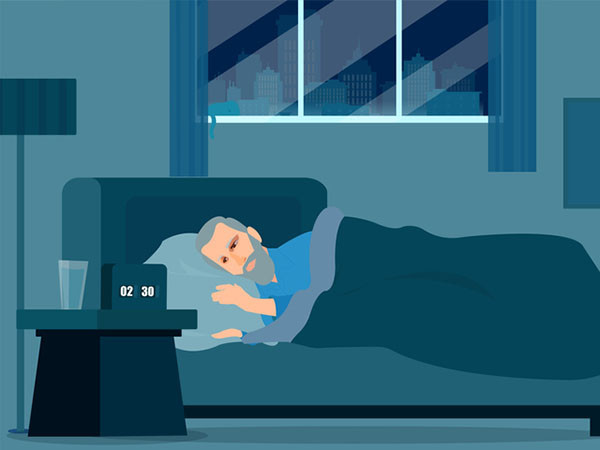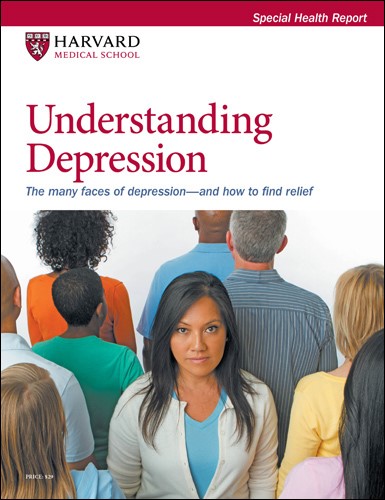Can we prevent depression in older adults by treating insomnia?

Depression is common among older adults. By some estimates, more than 10% of adults over the age of 60 have struggled with major depressive disorder (MDD) within the past year. There are a number of symptoms of MDD, including depressed mood, loss of interest in pleasurable activities, difficulty concentrating, thoughts of worthlessness or guilt, thoughts of death or suicide, fatigue, sleep disturbances, unplanned weight loss/gain or a change in appetite, and slowed or agitated movement.
How is sleep related to depression?
Both insomnia (difficulty with falling asleep, staying asleep, and/or waking too early) and hypersomnia (sleeping excessive amounts) are common in someone who has MDD. Notably, insomnia doubles the risk of MDD. This is of particular significance for older adults, as one study revealed that over 70% of adults over 65 reported at least one symptom of insomnia.
Why would researchers investigate insomnia treatment as a way to prevent depression?
There is increasing evidence that treating insomnia in patients who are suffering from both insomnia and MDD has the potential to improve both their sleep and mood. For example, in one study conducted in Australia, study participants with insomnia and MDD were treated with cognitive behavioral therapy for insomnia (CBT-I). CBT-I is a specific set of tools designed to help patients treat only their insomnia, and is distinct from other domains where cognitive and behavioral strategies are commonly used in treatment, such as depression. This means that the strategies one might learn when receiving CBT for depression would not help patients with insomnia. Despite receiving only insomnia-focused therapy, 61% of study participants who had received CBT-I from a behavioral sleep medicine expert felt better, and many symptoms of their depression improved — so much so that their MDD was considered to be in remission.
Preventing MDD in older adults with insomnia treatment
Recently published research in JAMA Psychiatry looked at whether CBT-I could prevent the development of MDD in adults over 60. A total of 291 participants who met diagnostic criteria for insomnia disorder, but who did not meet diagnostic criteria for MDD over the past 12 months, enrolled in the trial. Study participants were randomly assigned to receive either CBT-I from a clinical psychologist with expertise in this field, or a sleep education program from a public health educator that served as the study's control condition. The research team monitored study participants every six months for a total of three years to determine whether they developed MDD.
What were the results of their study?
Over the course of the three-year follow-up period, 12% of participants who had received CBT-I developed MDD, while 26% of participants who had received only a sleep education program developed MDD. The researchers then used a statistical approach to consider the impact of the extent of any mild symptoms of depression at baseline and the use of antidepressant and hypnotic medications. They concluded that there was a "nearly 60% reduction in likelihood of depression." It is interesting to note that among study participants who received CBT-I, their sleep appeared to play a role as well: only 5% of CBT-I recipients developed MDD if their insomnia had been cured, compared to 15% of CBT-I recipients whose insomnia was not cured.
What does this mean for me?
There is increasing interest in preventive medicine; that is, focusing on health behaviors to prevent disease rather than only treating health problems when they happen. During a pandemic when many people, including older adults, may be struggling with their mood, it appears that those with insomnia disorder could consider CBT-I as prevention against MDD, in addition to the many other benefits of treating insomnia.
It is important when searching for a provider that you make sure they specialize in CBT-I, and not mistake sleep tips or "sleep hygiene" for a multi-faceted CBT-I treatment program. There are online directories of specialists that offer a starting point for those interested, with many now offering telemedicine treatment.
About the Author

Eric Zhou, PhD, Contributor
Disclaimer:
As a service to our readers, Harvard Health Publishing provides access to our library of archived content. Please note the date of last review or update on all articles.
No content on this site, regardless of date, should ever be used as a substitute for direct medical advice from your doctor or other qualified clinician.
















